When Kim Douglas noticed a need for better parks in underserved Philadelphia communities, she teamed up with former population health professor Drew Harris to create the Park in a Truck program to convert empty city lots into beautiful city parks.
Throughout our history, Jefferson faculty, staff, students and alumni have bettered their communities as leaders in Philadelphia and throughout the world. Jefferson’s community of healers, builders and creators are always finding innovative ways to solve real-world problems and create a brighter future for everyone.
At Jefferson, we have an inherent responsibility to help those in need. Our staff, students, faculty and alumni all work collaboratively to provide access to much-needed resources and create better environments for underserved communities across our campuses and well beyond.
Children in urban environments need nature, but historically, redlined neighborhoods—or those that have experienced the withholding of certain services—don’t often get resources from the city to create these spaces. That’s why we wanted to create this toolkit, to share the resources needed to build a park from scratch, without assistance from the city.
Ideally, each Park in a Truck built will have less and less involvement from us. We might get to the point where we don’t even know about them. They go to the Park in a Truck website, use our toolkit and then parks are created. It just becomes self-sustaining.
After success working in Philadelphia, the Park in a Truck program is now a toolkit that makes the entire project more sustainable and allows others to engage with the social responsibility of beautifying their community to create a better environment.
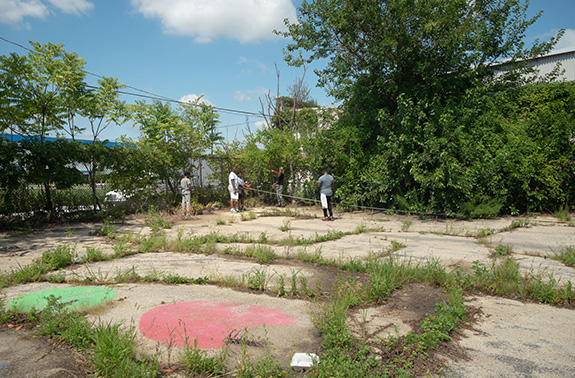
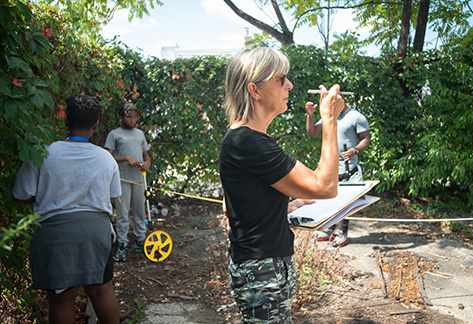
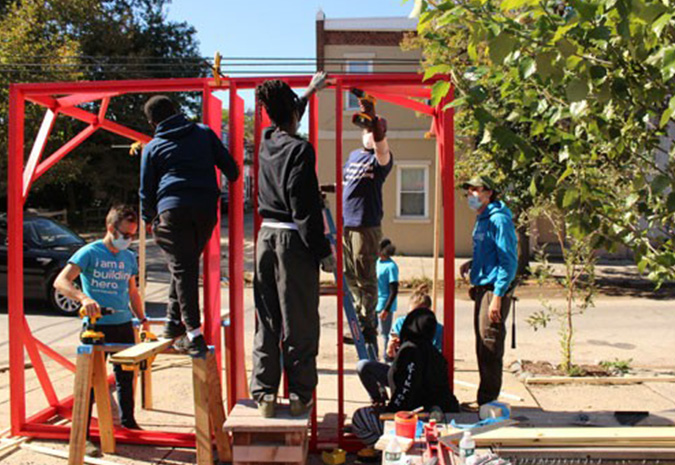
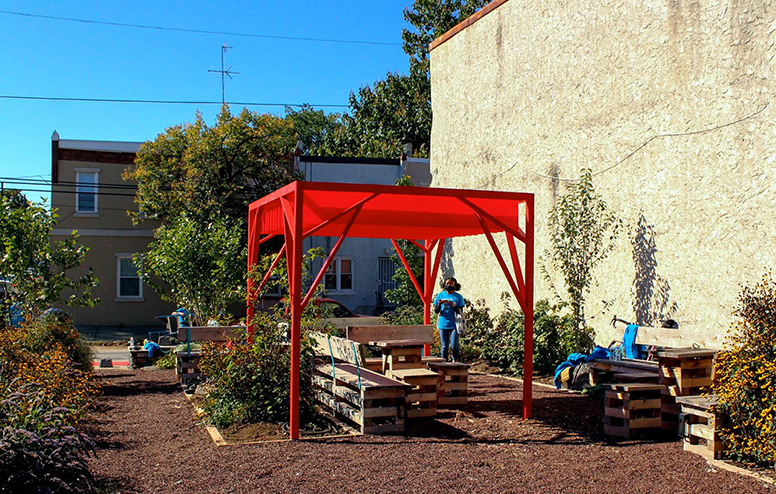
The toolkit walks users through six steps to create a model park in their community. Where one team only has so many resources, now people of all abilities can take the lessons and apply them where they live.
Jefferson instills a sense of responsibility to the greater community, as is evident in the robust service-oriented work of our alumni and students. Our graduates represent more than just their respective disciplines, utilizing collaboration and innovation to improve lives and create revolutionary change throughout the world.
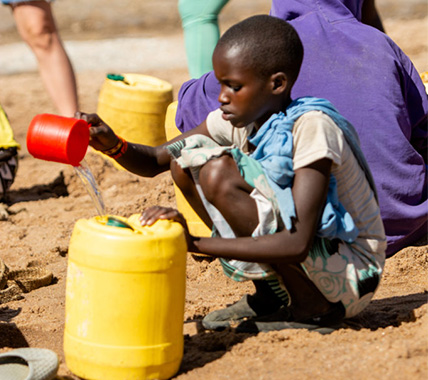
Kenyans lack access to safe water, according to Water.org. How can these people get the water that they so desperately need?

Pre-medical studies student Michele Ganz spent several months working at a health clinic in Nairobi, Kenya, where people traveled long distances for safe water to avoid the diseases caused by tainted water exposure. Michele established WeStillAlive - An African Story (WESA) to raise awareness and money to build water towers and improve infrastructure throughout Africa.
Jefferson taught me to always be patient-centric, instilling guiding principles that I use daily: to make clinical recommendations based on what is safest for the patient and to always maintain my intellectual curiosity. These make me the clinician I am today.

Stephanie Caterson, MD ’99, RES ’04, and her husband and fellow alum Edward J. Caterson, MD, PhD ’03, helped a 30-year-old man from Texas reintegrate into society after a high-voltage power line accident left him critically injured. The Catersons served as part of the nation’s first full facial transplant team to help save the man at the Brigham and Women’s Hospital in 2011. Stephanie helped with key microsurgical steps while E.J. acted as lead surgeon.
If we keep people focused on the great education they got at Jefferson, our hope is that they will want to give back for years to come.
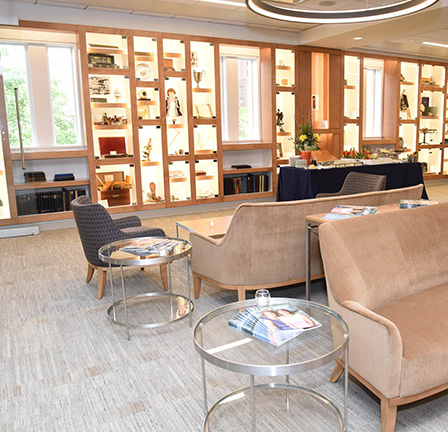
When Carol Ammon, BSN ’17, and her partner and fellow alumna Marie Pinizzotto, MD ’88, noticed a lack of space for alumni returning to campus, they decided to fund the Pinizzotto-Ammon Alumni Center. The facility creates a home away from home for visiting alumni with custom spaces to relax, reminisce and connect with Jefferson’s past, present and future.
The COVID-19 pandemic tested the strength and grit of the entire Jefferson system. While much of the country was closing down, Jefferson took action, proactively planning and implementing policies that kept the hospital running to save lives and provide students with the education they needed to navigate the most challenging public health crisis in modern history. Now, Jefferson’s place in the community is stronger than ever, in part, because of our ingenuity, preparation and sheer determination.
We knew at the beginning of March that a storm was going to hit us. And it was kind of like the quiet and peacefulness before the storm.
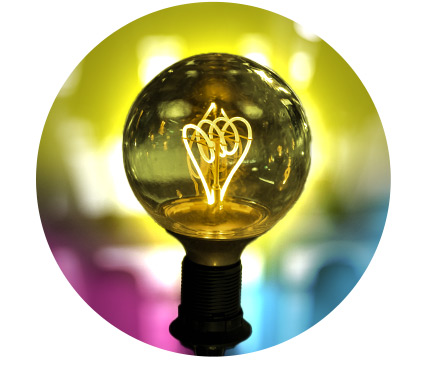
Thomas Jefferson University programs already offered some online programs when the COVID-19 pandemic hit, giving us a head start on remote learning.
When we look back at the decisions that were made, I felt that they were in line with our institutional values — putting people first, doing the right thing and being bold and thinking differently.

face shields were created by an estimated 100 Jefferson student volunteers to meet PPE supply demands.
It may be years before we fully understand the pandemic’s mental and physical toll on hospital caregiving teams: The effects of weeks of physical exhaustion exacerbated by waves of stress, anxiety and frustration and, for many, depression and insomnia. Even between the surges in case numbers, caregivers worked long shifts to treat patients, including very sick COVID-19 patients, under stressful conditions; too often, they witnessed multiple patients die, unattended by family members, during a single day.
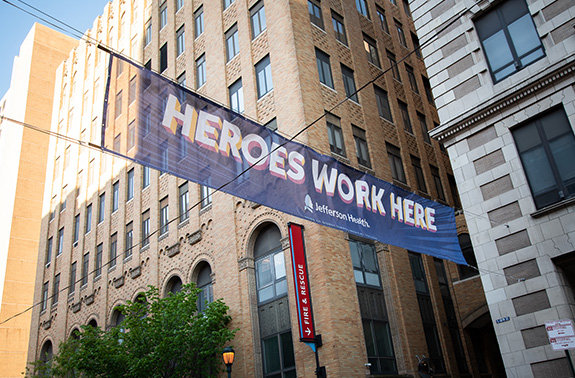
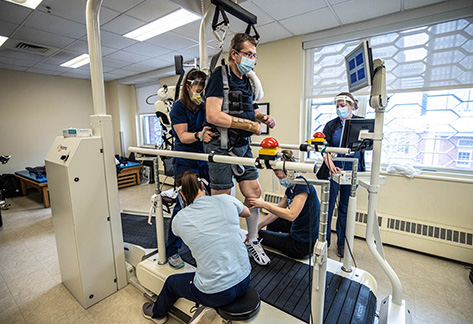
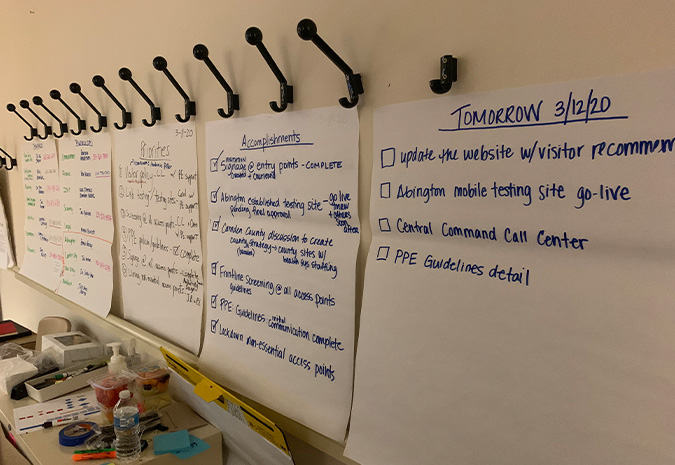
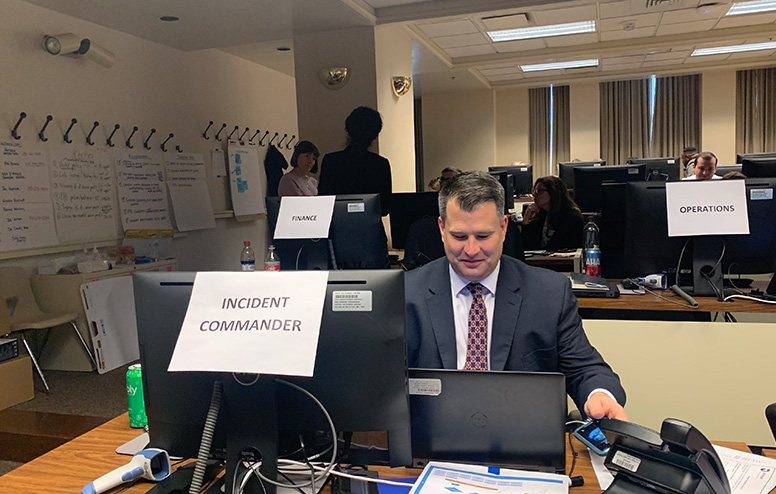
At the same time, these dedicated caregivers feared that, despite all their precautions, they might contract COVID-19 themselves; and, worse, that they might expose their families to the virus. Many isolated themselves from their loved ones, only increasing the pressures and anxieties they felt. Thousands of heroes, across 17 hospitals, saved countless lives and pulled us through this unprecedented time.
Throughout their time at Jefferson, our students, faculty and staff learn how to share their knowledge and abilities to make a meaningful impact on the world around them. Guided by our legacy of compassionate care and our unwavering commitment to being responsible citizens of the world in which we live, we will continue to better our communities and assist those in need.
Join the celebration at a Bicentennial event
Help us create a brighter future through service
Transform the future of health care, education and research